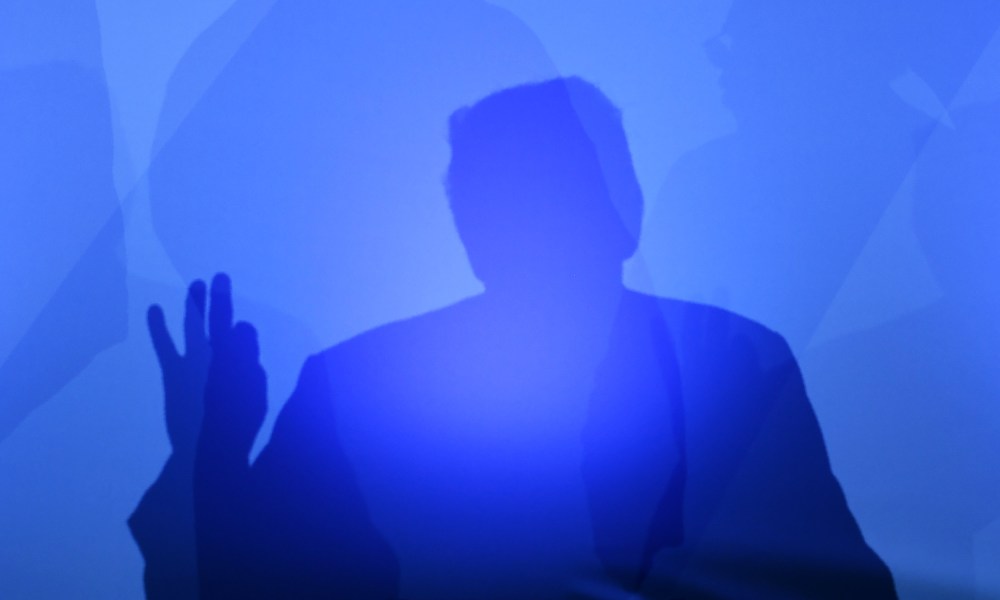As the 45th president embarks on a campaign to become the 47th president, a pearl of conventional wisdom that once tried to explain Donald Trump’s meteoric rise to power has re-emerged. That is the notion that Trump thrives on earned media, and his appeal would wither on the vine in its absence.
It’s true that Trump’s 2016 run benefited from free media — $2 billion worth of it before the nominating conventions were even held, by one estimate. His bid was good for the press, although as former CBS CEO Les Moonves confessed, it was not “good for America.” But the rubber-necking curiosity that helped Trump as a candidate doesn’t explain his staying power today. Trump long ago lost his claim to being an electoral powerhouse. His populist policy preferences have been widely adopted in the party, and his efficacy in office pales in comparison to some of his would-be contenders. His remaining appeal, such as it is, is partially explained by his ability to blot out the sun, and media plays a role in that. It is not, however, the attention alone, but a particular sort of attention from the right’s political enemies that fuels Trump’s fire: their hate.
The rubber-necking curiosity that helped Trump as a candidate doesn’t explain his staying power today.
In her column in The New York Times, Michelle Goldberg wrestles with the quandary Trump’s new presidential campaign presents the political press. “I understand that we cannot avoid writing or talking about a former president who is now a leading presidential contender,” she writes. “But we can all avoid letting him set the terms of the debate.” It is therefore incumbent on media, she contends, to caveat and qualify almost every mention of the former president with a litany of his past offenses and speculative inferences around the notion that his campaign is nothing more than a means to avoid an indictment.
NPR is on the same page. “Donald Trump, who tried to overthrow the results of the 2020 presidential election and inspired a deadly riot at the Capitol in a desperate attempt to keep himself in power,” the outlet reminded its readers, “announced he is running again for president in 2024.”
The Washington Post, too. Trump has shattered “long-held standards of decorum and civility with often shocking attacks on political rivals, judges and reporters,” the paper recalled. “He has frequently made racist and antisemitic remarks, mocked people with disabilities and denigrated developing countries, bragged about sexual assault and paid hush money to a porn star, praised dictators, declined to disavow extremists, inspired his supporters to resort to violence and defended white supremacists and Jan. 6 rioters.”

Some of this is evidence of a healthy journalistic impulse to impose accountability on Trump, though his immunity to shame is long established. But if itemizing Trump’s many offenses against civic decency and republican propriety is service journalism, the service provided is catharsis for Trump’s critics in the press. The unmistakable objective of this approach to covering Trump is the desire to shape political outcomes. It’s an impulse the right knows well, and it triggers a protective impulse in Trump’s supporters, reluctant or otherwise.
Writing in the reliably pro-Trump outlet American Greatness, William Allen put his finger on Trump’s appeal in 2017: “It’s not Trump that they hate; it is us!” It’s become a cliché — something conservative columnist Kevin D. Williamson deemed the logic of “divine transubstantiation” in which Trump’s defenders engage — but it is an observable phenomenon; Trump’s appeal is rooted to some degree in the extent to which he “drives all the right people nuts.” There are powerful emotional, cultural and, yes, commercial incentives at work on both sides of the political spectrum to capitalize on the other side’s anguish. The more anguish, the greater the incentive.
If itemizing Trump’s many offenses against civic decency and republican propriety is service journalism, the service provided is catharsis for Trump’s critics in the press.
That may be a base instinct, but it’s also an inexorably human one. And while these are early days in the 2024 presidential campaign, there are few indications that a more conventional Republican with a record of efficacy in office that eclipses Trump’s triggers the same reaction in “all the right people.” Sure, Trump alternatives like Florida Gov. Ron DeSantis present a “scarier prospect” to Democratic interests, as one Democratic strategist told The Hill, because he’s “a smarter version of Trump, he’s way more strategic, and he doesn’t have a hundred lawsuits at his feet.” But what DeSantis does not do — maybe what he cannot do — is inspire the kind of genuine apoplexy in his critics that Trump can.













